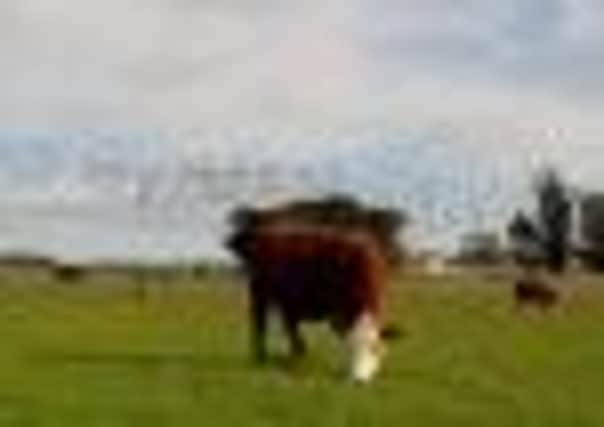Genetic data to play vital role in breeding


And the good news for producers is that they will benefit financially as a result of being able to choose sires that deliver specific traits to suit their requirements.
Speaking yesterday at a major conference in England, Dr Mike Coffey, the leader of animal breeding at the Scottish Agricultural College, outlined the progress that is being made in developing the genetic evaluation of dairy bulls.
Advertisement
Hide AdAdvertisement
Hide AdThe first fruits of this work will become commercially available in April this year when he said there would be a “surge of young bulls coming forward” well ahead of what would have been the case through traditional methods.
Current systems require lots of data to be collected during the lifetime of the bull and therefore semen is not available until the bulls are more than five years old.
The secret of this breakthrough has been the swapping of large amounts of genetic information between the UK and North America. This has seen literally billions of pieces of genetic information being transferred before being collated by computers specially adapted to crunch the important data into information valuable to producers looking for specific traits in their bulls.
“Initially there will be acceleration in the programmes of the commercial companies supplying the market for bull semen but in the longer term there should also be financial benefits for farmers as this new scheme is less expensive to run,” he said.
Coffey added that, while the dairy industry had led the way in this genetic work, the beef sector was now following up fast.
A new £1.8 million project involving ABP, the largest beef processor in the country, the British Limousin Society – representing the largest breed with almost one third of all cattle registered in the country – and SAC will bring forward the genetic evaluation of their bulls.
“This is an exciting development for the beef industry,” said Coffey. “The work will involve going beyond measuring the current traits of carcase weights and grades.”
The project will move into measuring the finer points of the carcase that can provide significant financial benefits. He added that even the adding of a centimetre or two to the length of a strip loin through improved breeding could provide better returns for producers.
Advertisement
Hide AdAdvertisement
Hide AdIain Kerr, chief executive of the British Limousin Society, said the research project was the biggest one the society had been involved in with an initial £300,000 investment but it believed its members would benefit through getting access to bulls with known specific traits.
“Genomics provides one of the big opportunities and by investing in this project there will be real value being added to the stock we produce,” he said.
The beef project is set to run for three years but he expected to see some bulls with genetic evaluations becoming available before then.